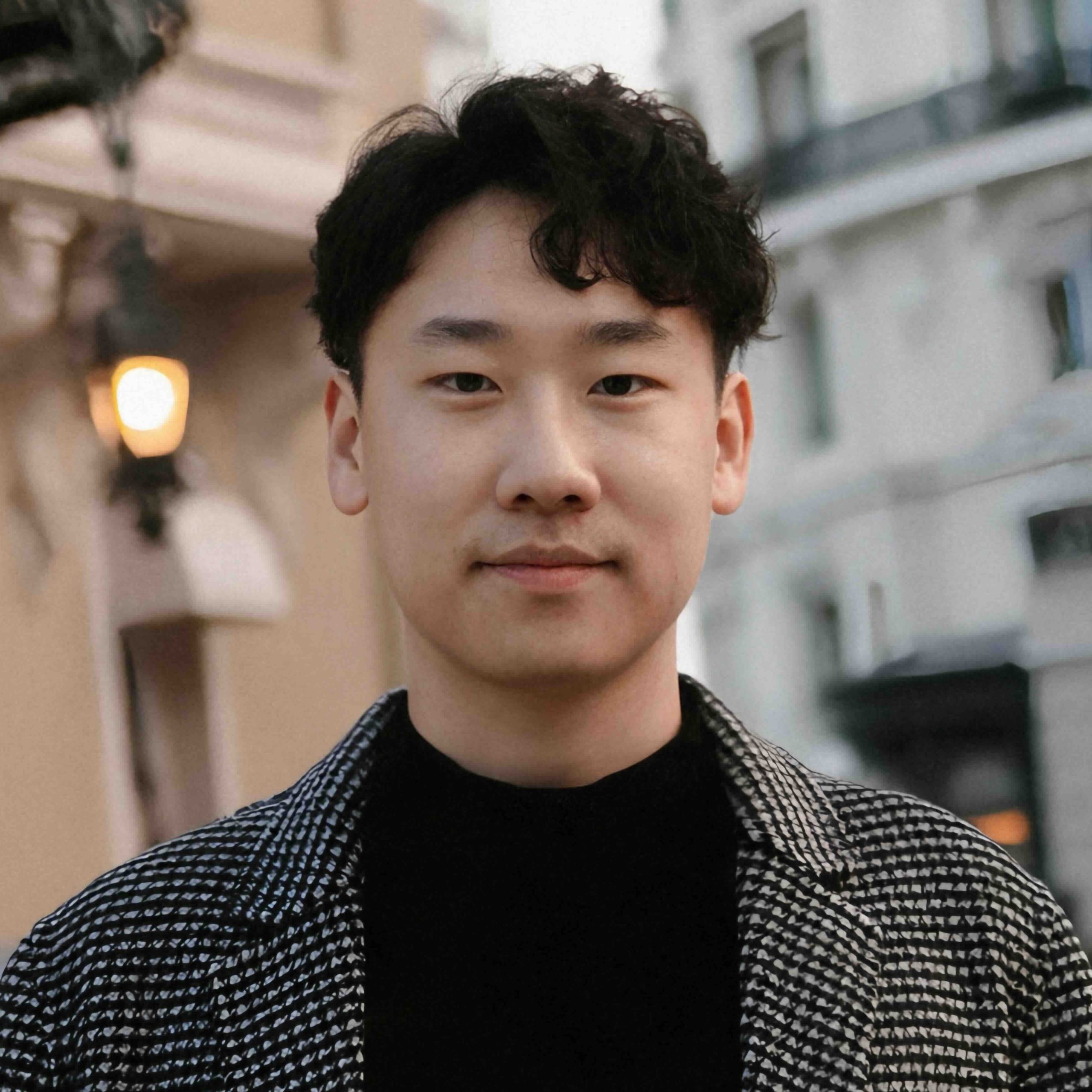
Time is ticking for the creative art industry?
An AI newbie’s experience organizing and participating in the MIT AI for Filmmaking Hackathon.
What would you do at 7:30 am on a 30 degree, rainy Saturday morning? If it also happened to be Lunar New Year’s Eve?
While my roommate was still waking up and getting ready to wish his family a happy New Year, I was carrying a box of T-shirts and running to the MIT Innovation Center with my co-organizers. The built-up stress of the past months made all of us a little frantic about the prospect of what was to come.
What if the projector doesn’t turn on? Will any sound come out of the audio system? Will our catered food arrive on time? However, these anxious thoughts were soon washed away when we kickstarted the busy preparation work and the participants started to arrive.
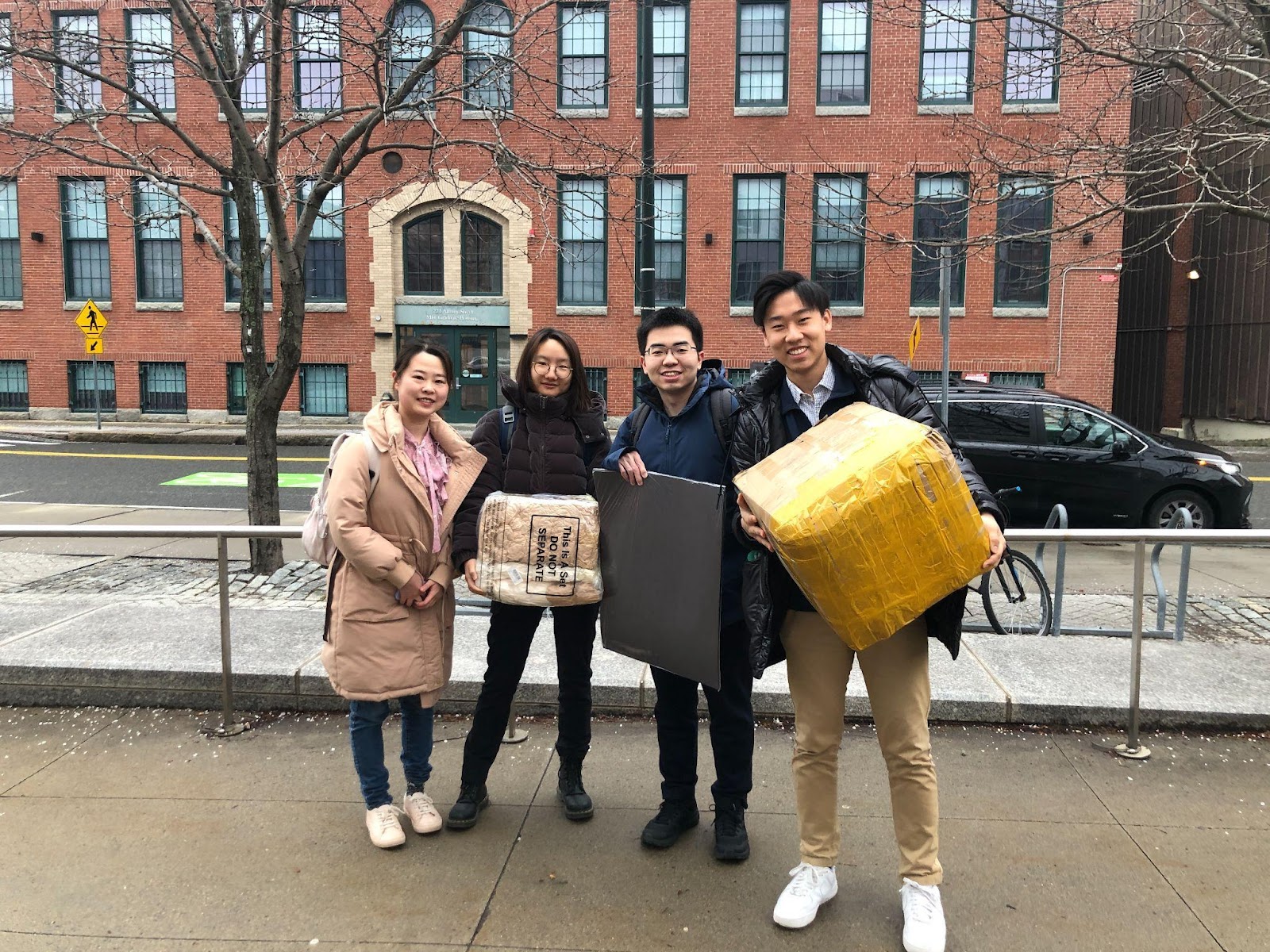
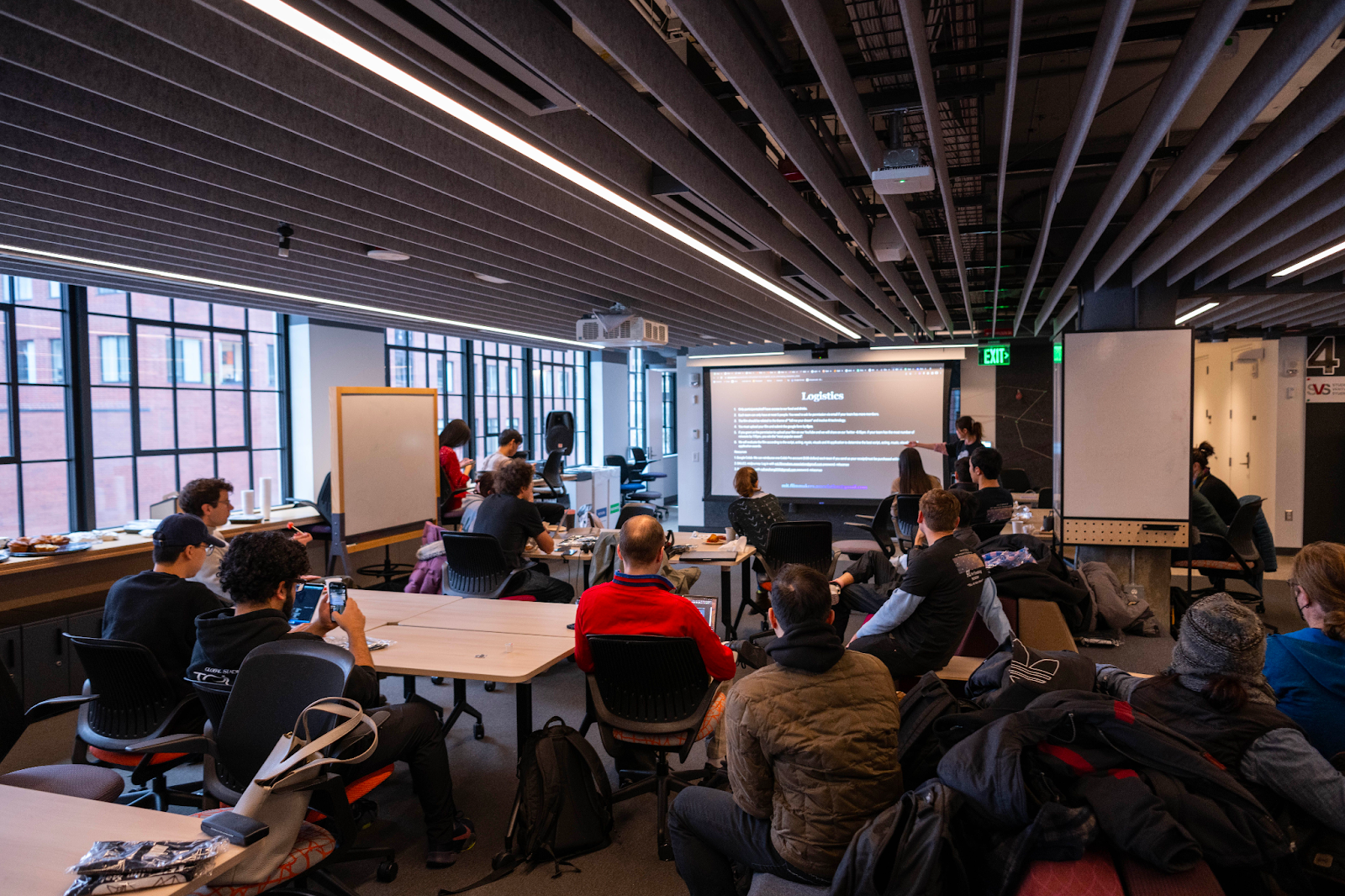
In the past decades, artificial intelligence (AI) grew from a sci-fi concept in mainstream media to a real and tangible technology that influences our daily lives. Meanwhile, at MIT–the forefront of AI, I feel, and often find others feel, that “AI” can be this untouchable, esoteric technology that I will never be smart enough to understand and use unless I am from Course 6 (Electrical Engineering and Computer Science) or CSAIL.
So when Ruihan first told me about her idea of hosting an AI for Filmmaking Hackathon during our MIT Filmmakers Association monthly social, I was like “no way! I know nothing about AI.”
On second thought, though, isn’t the Independent Activities Period (IAP) at MIT a time for us to explore things of interest to us? While AI can be intimidating for a biologist like me, I wanted to learn more about it.
We envisioned organizing a hackathon that brings together participants, including MIT students and staff, nearby creative art startups, interested individuals from the greater Boston community, as well as high-profile speakers and judges, from various backgrounds and disciplines to utilize AI in the filmmaking process and produce 2-3 min short films over a weekend.
As we moved along the preparation phase for the hackathon, I gained clarity on our mission. Through this event, we wish to educate and demonstrate that anyone, regardless of background, can utilize AI to materialize our artistic minds and accomplish creative works. AI is simply a tool, no different from a word processor for writing or a spreadsheet for accounting.
However, AI is more controversial than a grammar checker or number tabulator. Its use is entangled with ethical dilemmas and disputes over ownership of knowledge. If an AI model draws an image of a dog by learning millions of pictures of dogs, do the authors of the learning dataset have a fraction of ownership of the AI drawing? Is the AI drawing original? After all, don’t we humans also observe before we paint, and read before we write? If the AI drawing is not original, then how and who should make sure the training data is not infringing on others’ work?
It gets exponentially more complicated with the capitalization of AI technology. While the inflammatory debate of robots replacing human workers bifurcates the societal classes, AI tools like DALLE2, Stable Diffusion, ChatGPT, etc., inevitably cast a gloomy sky over artists in the creative industry. Will these artists be replaced next?
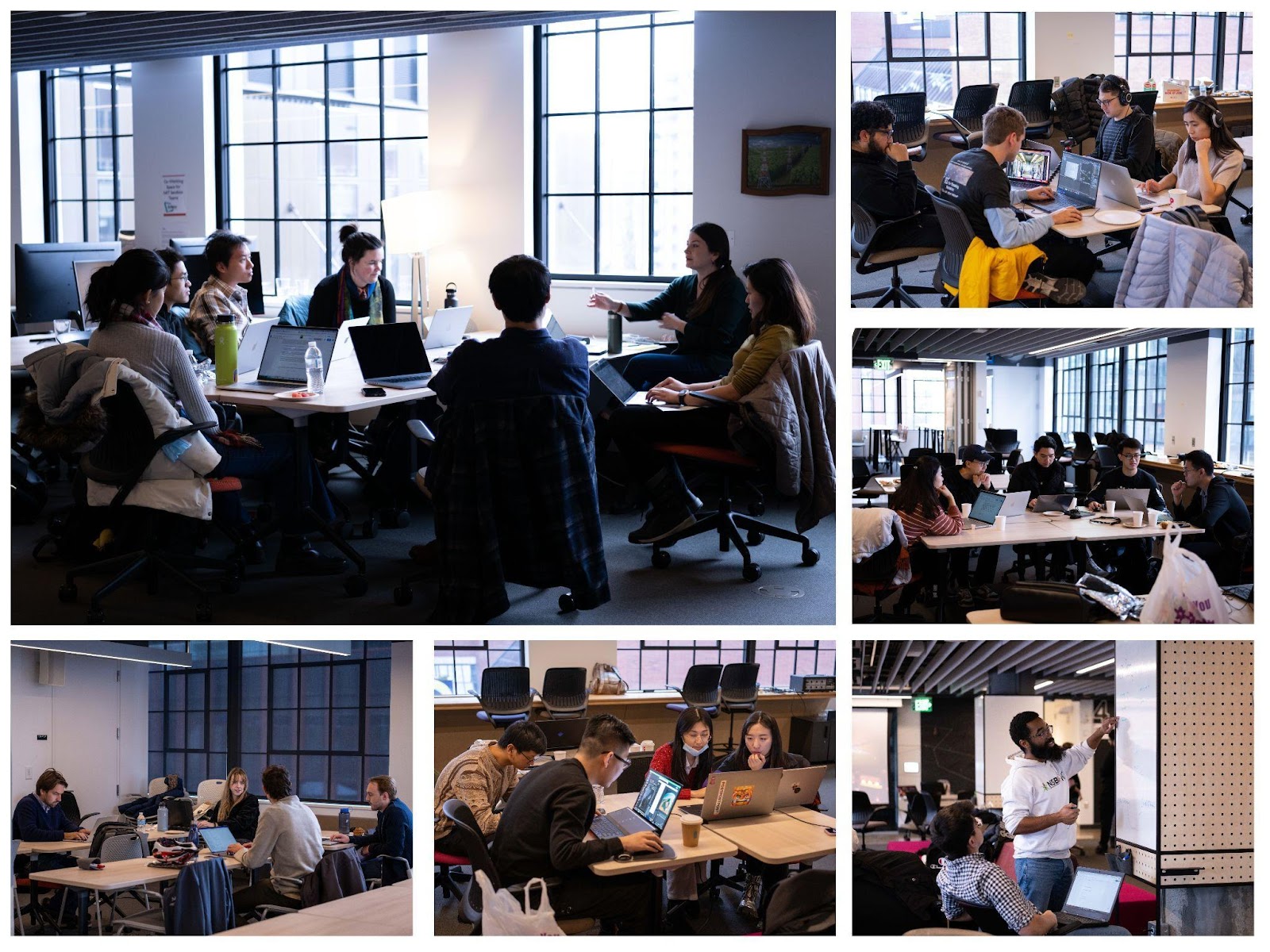
The hackathon participants seemed to be divided on the topic of whether AI will replace human creativity. The degree to which they utilized AI in their filmmaking process correlated quite well with their beliefs. One team created their film solely using AI (they hardly stood up from their desk all day!), while another team was gone all day filming live-action clips and only used AI to help expedite video editing. Some teams used AI for video, audio, and visual augmentation, and one team absolutely refused to use ChatGPT for script generation because “a machine cannot generate great characters that are so carefully connected to the human experiences, thoughts, and feelings”.
Our panelists also shared their opinions, expertise, and anticipations for the future. Even though AI may challenge the filmmaking industry in various ways, it also makes the expression of human creativity more accessible. For someone with no prior training in drawing or visual art, with the help of AI, they can now illustrate their abstract ideas or thoughts at their fingertips. With the changes brought about by AI on the horizon, the panelists and audience agreed that the standard by which we educate and select students or employees will also have to adapt.
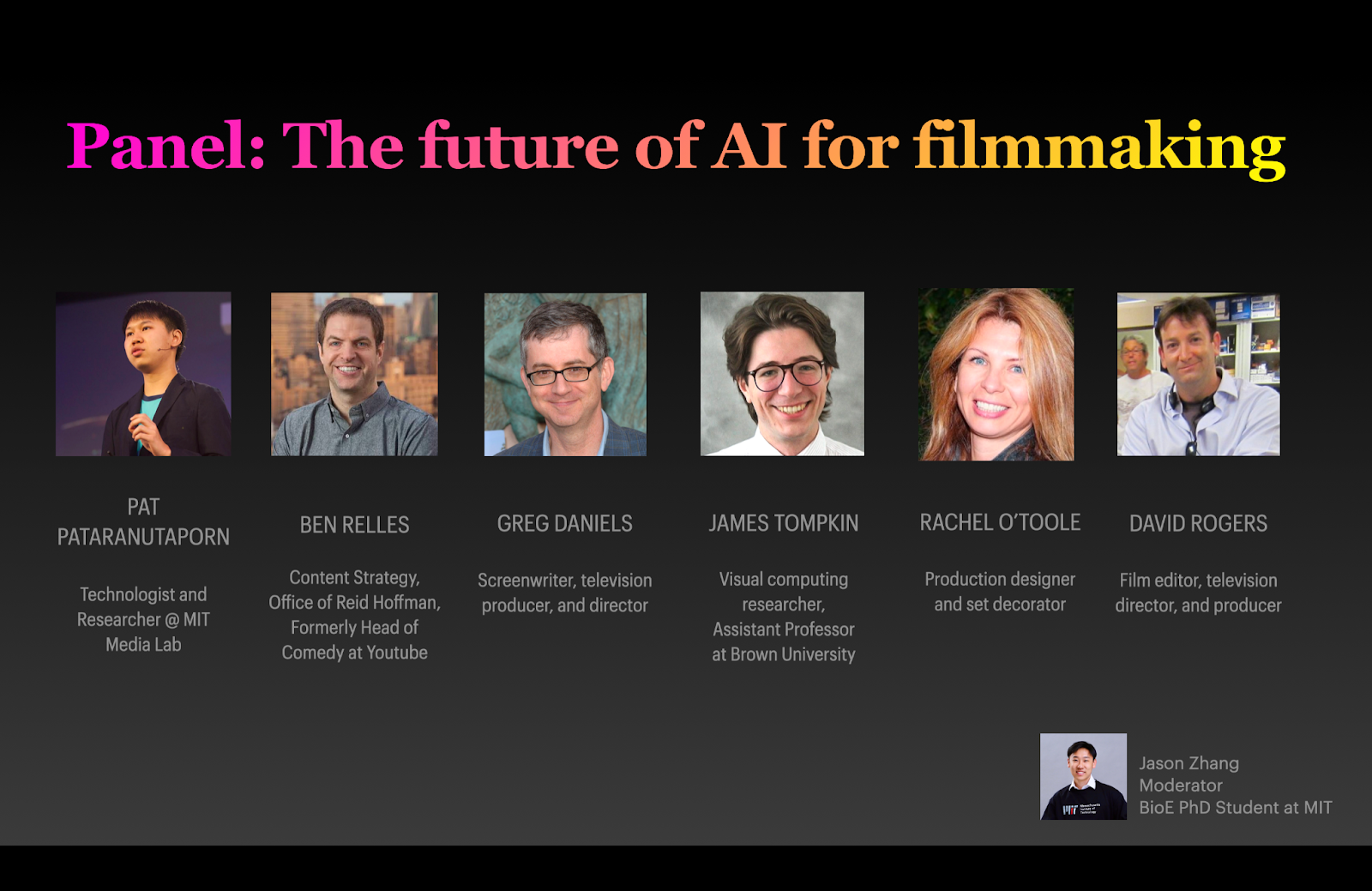
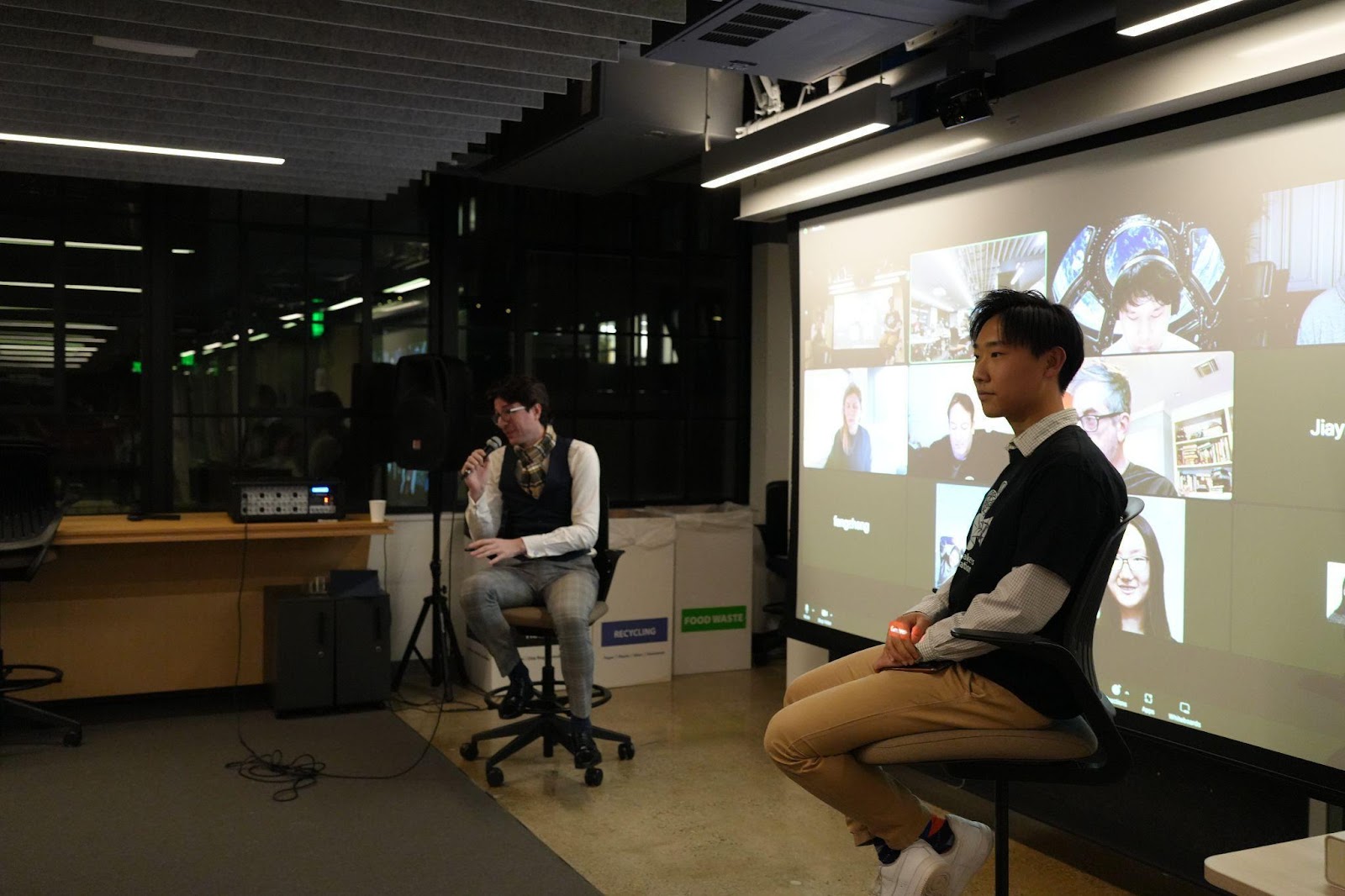
Despite the stress and anxiety from gathering the panelists/judges and planning the logistics of the event, it was a rewarding experience. Four months ago, I was intimidated by the fancy buzzword “AI”. Now, I am incorporating AI tools into my bioengineering research and using AI for my social media presence. AI unequivocally brings new opportunities but also poses challenges. Nonetheless, I feel fortunate to be a part of the MIT community and get to enjoy the films created by my talented peers.
Share this post:
